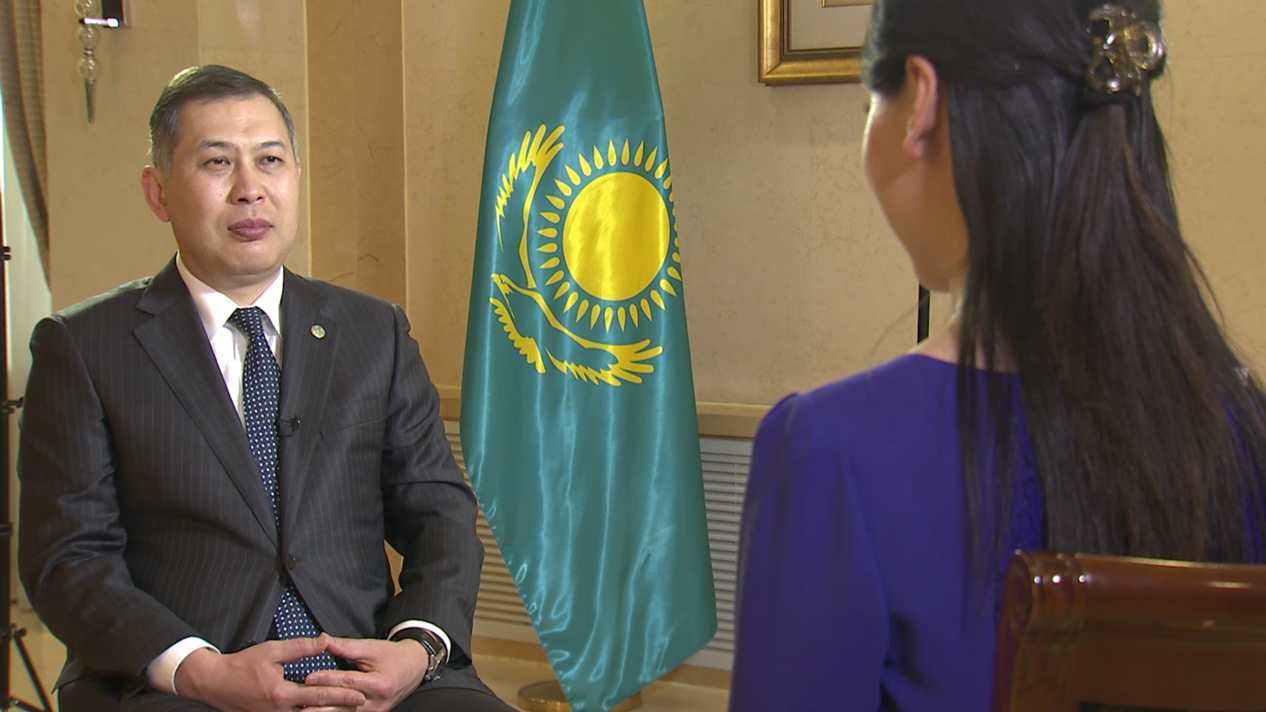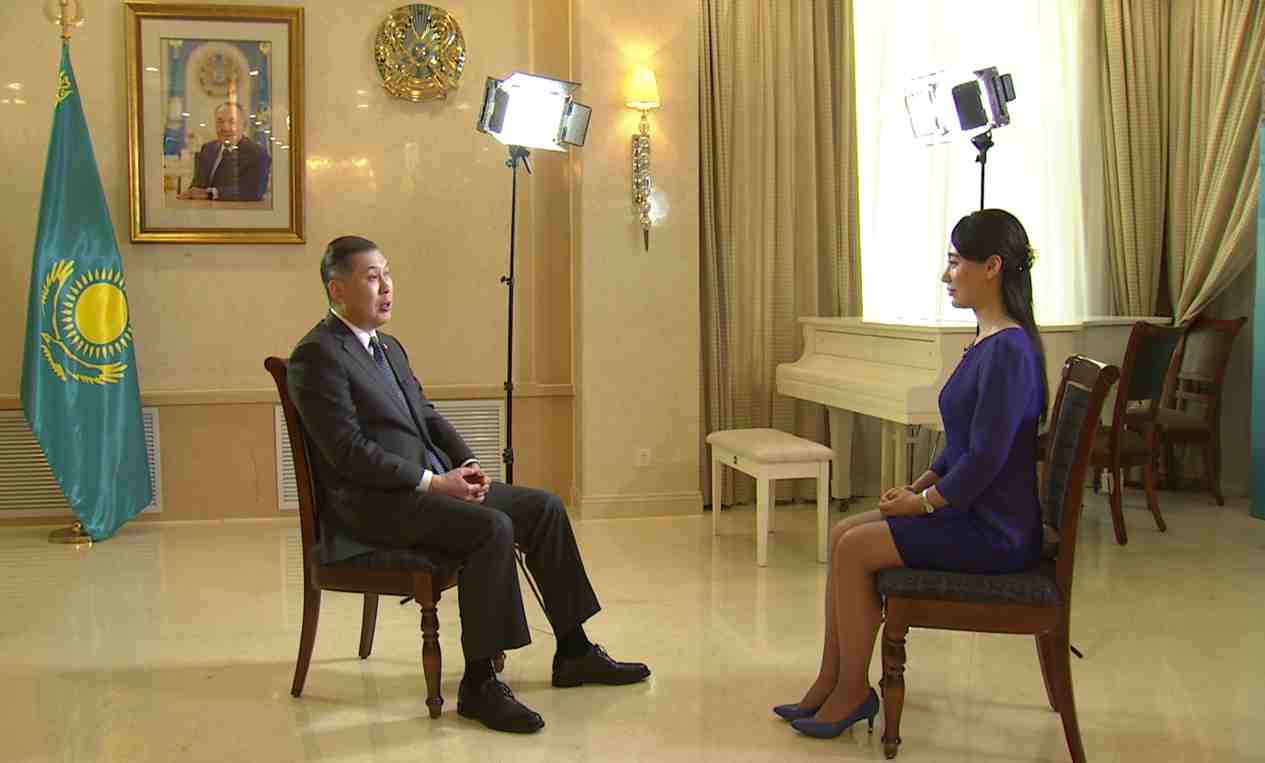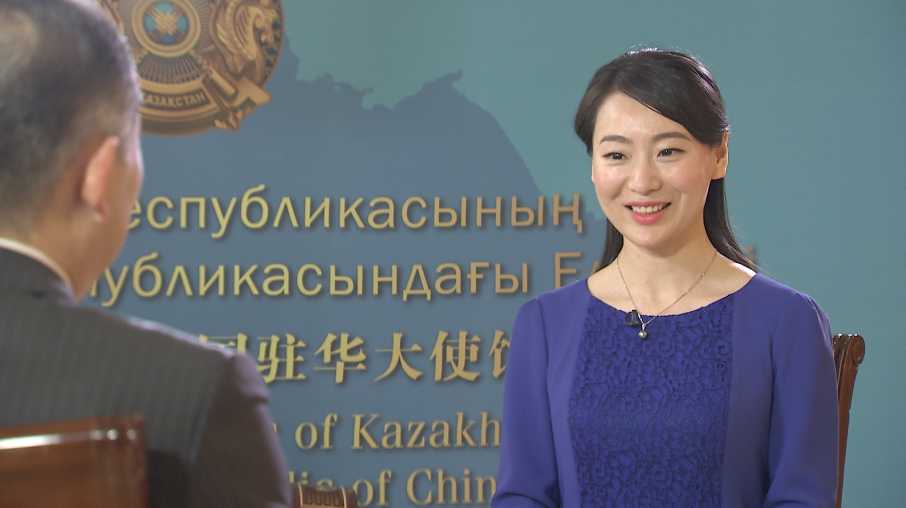
Politics
14:41, 07-Jun-2018
Kazakh ambassador to China talks SCO, Belt and Road Initiative and cooperation
By Su Yuting
03:02

China recently took over the rotating presidency of the Shanghai Cooperation Organization (SCO) from Kazakhstan following last year's summit in Astana. With this transition, Kazakh Ambassador to China Shakhrat Nuryshev said the country was willing to work with China to push for more cooperation within the organization, in an interview with CGTN.
Below is a transcript interview with the Kazakh ambassador, edited for clarity.

Kazakh Ambassador to China Shakhrat Nuryshev sits down with CGTN reporter Su Yuting. /CGTN Photo
Kazakh Ambassador to China Shakhrat Nuryshev sits down with CGTN reporter Su Yuting. /CGTN Photo
CGTN: China has taken over the rotating chair of the SCO after the Astana summit in 2017. It will soon host this year's summit in Qingdao in June. What are your expectations for the Qingdao summit, and what's your assessment of China's role in strengthening cooperation with member states under the SCO framework?
Nuryshev: I think this summit is an unprecedented one, because it's the first time for all eight SCO member states to gather together to discuss important issues.
As one of the founding members of the SCO, China has contributed a lot to the development of the SCO. Proceeding from the Shanghai Spirit, the SCO pursues common development and win-win cooperation, based on the principles of mutual trust, mutual benefit and equality. All the members – no matter weak or strong, small or big – respect each other and resolve their problems through mutual consultations. As a responsible country, China has been cooperating with other countries in safeguarding regional security, enhancing culture exchanges and strengthening economic and trade cooperation.

Kazakh Ambassador to China Shakhrat Nuryshev receives an interview with CGTN. /CGTN Photo
Kazakh Ambassador to China Shakhrat Nuryshev receives an interview with CGTN. /CGTN Photo
CGTN: During the Astana summit last year, the SCO accepted India and Pakistan as full members in its first expansion since its founding in 2001. This made it the world's most populous regional cooperative organization and the largest by area. What will that mean for the future development of the SCO?
Nuryshev: After India and Pakistan joined, the SCO covers more than 40 percent of the world's entire population, and about 20 percent of the global GDP. The SCO has become a very important organization in the region, a more influential bloc and is playing a more important role in the world.
CGTN: The Belt and Road Initiative, first proposed by (Chinese President) Xi in 2013 in Kazakhstan, comprises the Silk Road Economic Belt and the 21st Century Maritime Silk Road. Its aim is to build a trade and infrastructure network connecting Asia with Europe and Africa along the ancient trade routes. What's your assessment of the initiative? And how will Kazakhstan cooperate with China under the Belt and Road Initiative?
Nuryshev: Kazakhstan's President Nazarbayev immediately showed his support for President Xi's proposal. Our two countries have had a wide range of cooperation, on issues such as transportation. Five railways come through the land of Kazakhstan, including those starting from China and stretching towards Russia, the Gulf, Central Asia and Europe. Container handling capacity between China and Europe has doubled annually. Chinese and Kazakh railway companies also have very close cooperation in transportation. Kazakhstan has invested nine billion US dollars in developing its railway construction to build the country as an important transportation hub along the route of the Silk Road Economic Belt. I want to emphasize that we are willing to cooperate with China to push forward the development of the Belt and Road Initiative, which has proved to be win-win and effective.

SITEMAP
Copyright © 2018 CGTN. Beijing ICP prepared NO.16065310-3
Copyright © 2018 CGTN. Beijing ICP prepared NO.16065310-3